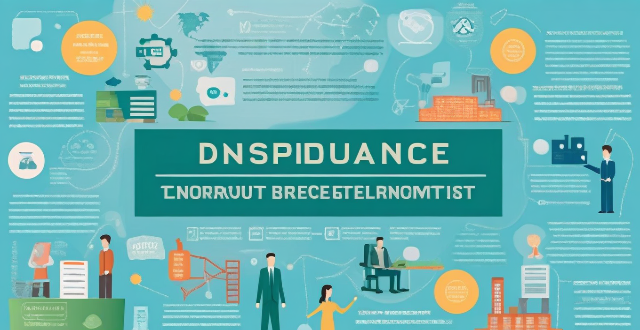The text discusses the importance and effectiveness of international cooperation in various areas, including environmental protection, health and disease control, economic development, peace and security, education, and cultural exchange. It highlights specific initiatives and agreements that have made significant progress toward common goals, such as the Paris Agreement on climate change, the World Health Organization's response to pandemics, regional trade blocs like the EU, UN Peacekeeping operations, and UNESCO's work in cultural heritage preservation. The summary emphasizes that collaboration between nations can lead to substantial achievements and improvements that benefit all of humanity.

International Cooperation: Areas of Effective Collaboration
International cooperation is a crucial aspect of global governance, enabling countries to work together towards common goals and address challenges that transcend national boundaries. There are several areas where international cooperation has proven to be particularly effective.
Environmental Protection
- Climate Change: The Paris Agreement is a landmark in international climate action, bringing together nearly 200 countries to commit to reducing greenhouse gas emissions.
- Biodiversity Conservation: Initiatives like the Convention on Biological Diversity (CBD) promote the protection of ecosystems and endangered species across the globe.
- Marine Life: Regional fisheries bodies and agreements such as the International Whaling Commission (IWC) regulate fishing practices and protect marine life.
Health and Disease Control
- Pandemic Response: The World Health Organization (WHO) coordinates international efforts to combat pandemics like COVID-19, facilitating information sharing and vaccine distribution.
- Global Health Security: Initiatives such as the Global Health Security Agenda (GHSA) bring together nations to strengthen health systems against infectious diseases.
- Vaccine Development: Partnerships like GAVI, the Vaccine Alliance, help ensure access to vaccines for children in developing countries.
Economic Development
- Trade Agreements: Regional trade blocs like the European Union (EU) and the North American Free Trade Agreement (NAFTA) facilitate economic growth through reduced tariffs and increased market access.
- Foreign Direct Investment: Multilateral institutions like the World Bank provide funding for infrastructure projects that stimulate economic development in recipient countries.
- Technology Transfer: Collaborations in science and technology, often facilitated by organizations like the United Nations Industrial Development Organization (UNIDO), aid in transferring knowledge and skills between nations.
Peace and Security
- Conflict Resolution: The United Nations Peacekeeping operations work to maintain peace in conflict zones around the world.
- Arms Control: Treaties such as the New Strategic Arms Reduction Treaty (NEW START) limit nuclear weapons, promoting global security.
- Anti-Piracy Efforts: International naval forces collaborate in regions such as the Gulf of Aden to combat piracy and protect commercial shipping lanes.
Education and Cultural Exchange
- Scholarship Programs: Institutions like the Fulbright Program offer scholarships for students and scholars to study abroad, fostering cross-cultural understanding.
- Cultural Heritage Preservation: UNESCO works globally to protect cultural heritage sites and promote intercultural dialogue.
- Scientific Research: International collaborations in fields like astronomy and particle physics, often involving shared facilities like the Large Hadron Collider (LHC), advance human knowledge.
These examples demonstrate how international cooperation can lead to significant achievements and improvements in various domains, benefiting not just individual nations but humanity as a whole.